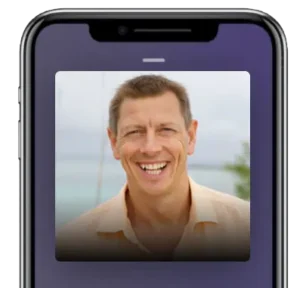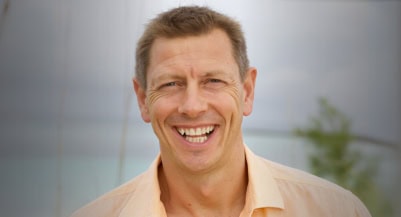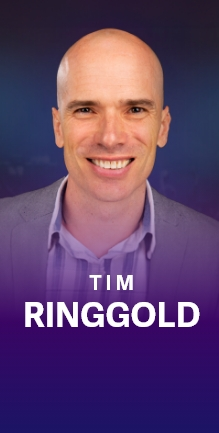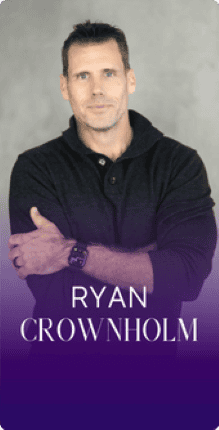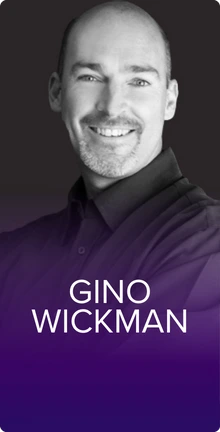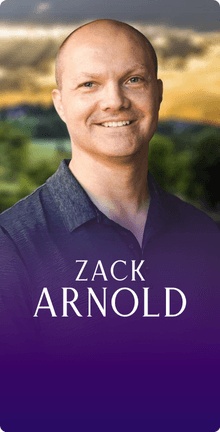In this Episode
- [04:19]Peter Sage narrates his journey of selling toys at a flea market, starting with £5 and eventually earning £1000 within three to four months.
- [09:05]Peter describes a major business project involving commercializing space-based solar power, a billion-dollar project to build a gigawatt satellite.
- [11:02]Peter recounts being sued by Hewlett Packard for $17.5 million for reselling equipment without permission, leading to legal battles and financial strain.
- [19:19]Peter reflects on the prison experience, emphasizing the importance of emotional maturity and seeing challenges as opportunities for growth.
- [23:34]Stephan and Peter touch on the concept of “positive conspiracy,” where life events are seen as supportive rather than hostile.
- [26:29]The idea of life as a non-linear journey is discussed, with challenges serving as opportunities for growth and self-discovery.
- [33:39]Peter shares stories of positive influences, including a fellow prisoner named Joseph Samuel, who inspired his work in prison.
- [39:32]Peter describes how his time in prison fostered profound personal transformation and enabled him to assist others, such as reducing violence and preventing suicides.
- [51:24]Peter unveils plans for an upcoming adventure—rowing across the Atlantic—to challenge his self-mastery and inspire others.
- [53:48]Peter provides resources for further exploration and encourages listeners to engage with his work and implement the principles discussed.
I’m really excited to have you on the show, Peter. Thanks for coming.
Well, Stephan, it’s a real pleasure to be here, and I’m so glad we made it happen. I’m excited about today and about hopefully adding a huge amount of value to people who gave us their time.
You were on my wife Orion’s podcast recently, and that was a phenomenal episode. You certainly inspired Orion from that conversation, and she’s consumed some of your content and really gotten a lot of value out of it. So, thank you. I don’t know if you knew this or not, but I would read excerpts from your book, The Inside Track to Orion. I don’t read a lot of books to her, so that was pretty special.
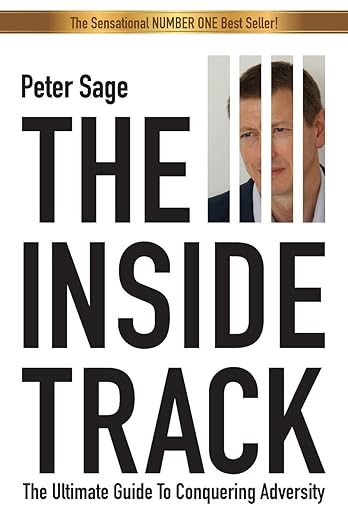
It was one of the handful of books I was reading out loud to her. She got a lot of value out of the stuff that I shared in that book. Thank you for writing that. Let’s talk about how that book came to be because it’s just such an incredible story. You were a Tony Robbins trainer for a while and have done incredible things, but what an incredible story. It is really incredible what happened to you for you and how you can look back at it with gratitude now. What a crazy experience you went through. Let’s start there.
Well, like many great things, it certainly wasn’t planned. I think sometimes the harder we try at something, the more importance we place on it, and the more we set ourselves up to fight the flow rather than be in flow. And that’s really, again, how the book came about. I never set out to write a book. It was a byproduct or a consequence of a certain series of events that, I’m sure you’re aware of, were not planned to be turned into a government-sponsored book-writing program, which is essentially how I sometimes refer to the experience.
If you want to start with kind of the backstory, I’m happy to go there. But as you alluded to in the intro, very gratefully identified as a serial entrepreneur. It’s all I’ve ever known. I dropped out of school at 16. I started my first business selling toys on flea markets at 17 years old with my last £20. I used my last £5 to gain access to the flea market stall. I used £15 to buy some wholesale toys. I couldn’t even have it out of the boot of my car. We call it a car boot sale in England and a flea market in the US.
But I didn’t have a boot or a trunk because I had one of the old Minis. That’s where the little engine sits in a little Mini and where the battery is in the back. There’s not enough space for putting things in. So I had them on the back seat of this tiny little car. I’m six foot three. I don’t fit in a tiny little toy clown car. But I remember chugging up to this field that this farmer had where the cars were parking in a row in a line, and people were paying to come in.
I think sometimes the harder we try at something, the more importance we place on it, and the more we set ourselves up to fight the flow rather than be in flow.
Pulling the manual window, I handed my last £5. I remember the person taking it, and all I could think of was, “t’s my last five pounds. Will I ever see it again?” I couldn’t have a little paste table on which some people were putting their gifts and wares because it wouldn’t fit in the car. So I laid this blanket out on the floor, put the toys on it, and ended up selling everything for 30 pounds. I doubled my money, and I went back the following week. It was the same deal.
This time, I bought 25 pounds of toys. I was building up my stock, wound the window down, and handed my last £5 through. I sold that £25 for £50. I doubled up again and kept doing more until I had enough stock to cover a proper market stall. Then, I started doing Sunday markets. My catchphrase was “Pete the Toy Boy.” Because I was 17 years old, it wouldn’t work today in my 50s, right? But I had a great time, I really did.
From my side, it was just an adventure, but it taught me a very valuable lesson: I didn’t need a so-called education so that I could invest part of my time being able to have to validate my short-term memory by remembering answers to questions that seemed irrelevant in real practical daily life so that I could get a certificate signed by somebody I’ve never met to tell me that I’m worth more in the marketplace.
I never bought into that. I wasn’t smart enough to buy into that, and I wasn’t smart enough to stay on past high school, right? But it taught me a valuable lesson. From my last £20, starting that first-ever little trip to the flea market, to making my first thousand pounds, it took about three to four months. I started in June, and I’d made my first thousand by October. The key point there, Stephan, was I’d made it, I’d not earned it. That was a massive distinction for me.
I gained a lot of experience, and part of my security was that I started with nothing. Therefore, I’m not afraid to go back to nothing.
It was like, “Wow, if I can make money, I’ll always be able to make money.” So, I became an entrepreneur, which led to an incredible career. My first million-dollar business was in my early 20s. After that, I had some spectacular failures. Some wiped me out completely; some seemed like a good idea at the time but probably should have stayed ideas when I was drunk and pretty much everything in between.
But I gained a lot of experience, and part of my security was that I started with nothing. Therefore I’m not afraid to go back to nothing. I think you see a lot of people who come from, certainly not privileged, from a working or low middle-class background and make it. They get out there, and they hustle, and they work hard. You see the pattern of entrepreneurs: they go feast, famine, or boom and bust.
One time, they’re up, and then they’re down, and then they’re up, and then they’re down. It’s kind of a common cycle. If you’ve experienced that in people you know that take that path, it’s a little different from the sort of corporate, slow progression ladder. I looked at that, and I realized that I think a large part of the reason why people build a lot of money and then it burns to the ground or they lose it and then get it back and lose it and get it back is because when you have nothing, you’re focused on getting it.
You’re focused on being able to work and apply yourself. And so the focus is forward. When you have, call it your first million or your house, your car, whatever the milestone is you set, there is an energetic shift that now switches the focus from, “How do I get it?” and “Let’s focus on getting it” to “How do I not lose it?” And, of course, the focus goes where energy flows and vice versa. And now it all comes crashing down.
Focus goes where energy flows and vice versa.
But over my career—I’m certainly in my 20s—I made a lot, lost a lot, seen a lot, done a lot, and had a lot of fun. I didn’t define my self-worth by my net worth, which was a big part. I’ve been an entrepreneur for 35 years now. I’ve been completely unemployable. I was in the sort of 2010 side of town, so, say, 15 years ago, I was doing the most ambitious business project I’d ever undertaken—kind of like SpaceX level.
We were commercializing a technology I was developing called space-based solar power. If you take solar panels, everybody knows if you put them on rooftops or on the ground, it gets dark every night. You don’t want to hook up a hospital life support machine to solar panels in case it’s cloudy for three days. That’s not a good deal. Solar energy is always a supplementary source of energy, and it needs to be supplemental to what we call baseload power (24/7), hence coal. Nuclear.
The only renewable baseload is hydro, but that’s pretty tapped out. Geothermal, maybe, but it’s location-dependent. I saw this as a real gift to the world. It was a huge undertaking: a billion-dollar project to build the world’s first gigawatt space-based solar satellite. Imagine a kilometer or more square of solar panels in space, thin film, not the hard glass stuff you see on roofs.
The cost-to-weight ratio was the key—metric pounds to orbit. You can take that energy 24/7 outside of the Earth’s shadow and transmit that back to Earth 24/7, 365 via radio waves, just like you get a cell phone signal 24 hours a day from satellites going around the Earth powered by solar panels—the same deal, and it was ahead of its time. I couldn’t make it work commercially, so I started supplementing the income.
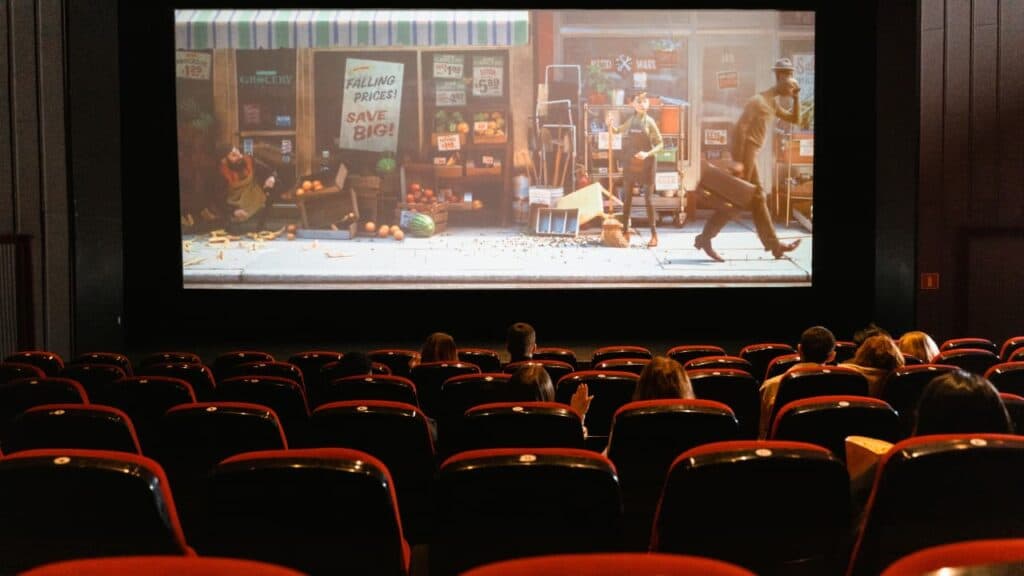
The business was burning about 300 grand a month. To make it easy on myself and some of the investors, I started supplementing by selling IT equipment. I was buying millions of dollars and reselling it with small margins. Anyway, the business, unfortunately, wasn’t commercially viable, and eventually, I left my home in the Middle East. I was in Dubai, and I came back to England. I was just starting a new business in coaching, training, and helping people and about 50 staff.
We were doing about six-figure revenues a month. I get a knock at the door one morning from Princess Diana’s divorce lawyers, Mishcon de Reya, the most ruthless law firm, a $100 million law firm in London. If you’ve seen Suits, it’s that kind of level. They’re suing me on behalf of Hewlett-Packard (HP) for 17 and a half million dollars. They’re like, “You bought 12 and a half million dollars worth of goods, and you resold it, and we didn’t permit you to resell it.
I’m like, “Whoa. You didn’t tell me I couldn’t. Show me a contract saying I can’t resell it.” The contract’s very clear. If I pay in full, it’s about 12 and a half million, which I did, then I own full title. I can set fire to it if I want. I can give it away. They’re my goods. “Oh, well, you know, some of the people contracted to buy from us, our distributors bought some of it from you cheaper than they were buying it from us.” I’m like, “Well, that’s their deal, not my deal.”
“Yeah, but we don’t need to do it again. So we’re suing you for the difference between the wholesale and retail price at $17 million.” I’m like, “That’ll never stand up in court.” They said, “Well, any entrepreneurs listening to this or anyone looking to get into their own business needs to understand that when it comes to civil actions, litigation is a tool. It’s not about who’s right or who’s wrong. It’s a positioning tool. The vast majority of litigation is a positioning tool.
Over my career, I made a lot, lost a lot, seen a lot, done a lot, and had a lot of fun. I didn’t define my self-worth by my net worth, which was a big part.
When Apple sued Samsung at the Berlin Fair over patent infringements, it had nothing to do with patent infringements. That was eventually dropped. However, the injunction they managed to get under that premise stopped Samsung from launching a competing product at the Berlin Fair, which gave Apple a leg up in the market. It’s a tactical chess move. When people realize that, then you can see the game for what it is. And especially in places like America, which is highly litigious.
It’s a tool for intimidation.
Exactly. They know it would cost me several hundred thousand dollars to defend this. They’re a hundred billion dollar company with a $100 million law firm. Who am I? I’m trying to get back on my feet, doing six figures in revenue a month. I’m like, “This is David and Goliath,” and they knew it. They said, “Look, give us 100 grand. We’ll make it all go away.” They know it wouldn’t get to court. They know it wouldn’t pass muster. But they also knew that it would cost me a couple of hundred grand to defend it. I may as well just give them 100 grand.
They were jealous because they just wanted to make some of the profit that I’d made back on their side. I’m like, “It’s just wrong.” I don’t take somebody with bigger financial muscles in the playground bullying the little kids lightly. Especially when the little kid is me, right? I ain’t playing ball. Long story short, they froze all my accounts. They got an ex-party freezing order and told the judge I was a flight risk for 17 million.
I was like, “There is no 17 million loss. I paid you 12 and a half million in full.” It was all positioning. But they then said, “But we want you to settle.” I was like, “I’m not settling. The judge will laugh this out of court in five minutes.” They then issued a contempt of court order, which basically said to the judge that I breached the court order for the freezing order that they put on me. I haven’t done that.
I read it, and it was a very clever, distorting context to replace and validate their version of content. And so I went to court for a hearing to basically get rid of this. They sold it to the judge. He gave me six months in prison as a civil prisoner—never been arrested and never been accused of a crime. The police didn’t even know I was in prison—no parole officer, civil prisoner in the worst, most violent prison in the UK, which happened to be the nearest one to the court that I was taken to.
If people make the mistake of thinking that life is a comfort-centric experience, they’re going to have a tough time in this game when they realize that life is a growth-centric experience.
One day, I’m running fairly successfully, getting on my feet again in business in the UK. The next day, I went from 50 to three staff in three days. They hit me with legal costs. I’m now hundreds of thousands of dollars in the hole, and I’m locked up in the most violent prison in England, having never even been accused of a crime. That is what I tell people; it is a great example of what I call a ‘graduation event.’
If people make the mistake of thinking that life is a comfort-centric experience, they’re going to have a tough time in this game when they realize that life is a growth-centric experience. If you go to the physical body, you only ever grow through challenging it. We know that in the gym, if you don’t challenge it, it’s going to deteriorate. But it’s the same for us all. It’s the same for who we are as people. That is what makes us us. I recognized it as a ‘graduation event.’ Once you do that, your relationship with challenges, circumstances, and problems shifts dramatically. And that’s what I had to do.
As you know, that’s just incredible. I’m imagining what it must have been like to get that contempt of court ruling and then be sent to prison. Wow. What was going through your mind at that time when you first got the sentencing?
They recessed for the judge to deliberate. I’m still thinking that even if he finds me in contempt, he’s gonna find me or give me a suspended slap on the reel or something. I never saw prison coming. We walk back after recess, and the ward of the court walks in with a pair of handcuffs. I’m like, “Oh, this looks like I’m going away for a bit.” My partner at the time said, “What happens if you do?”
I’m like, “Honey, here’s the deal. I’ve spent the last quarter of a century trying to teach people how to deal with being a better version of themselves through having the right mindset. If the universe, or whatever you want to call it, wants to send me somewhere like a prison, where people would never get to see my work as a beacon of light to try to help other people, then let me do my work.”
I made an identity shift because if I saw myself as a prisoner, I was screwed then. It’s so easy to go into victim mode. “Oh, courtroom shenanigans. This isn’t fair,” all of that nonsense. That makes no difference. Instead, I decided to have the identity of a secret agent of change, and I was being smuggled into prison in the only way possible, where you don’t have a criminal record without ever being accused of a crime.

I come out afterward with no criminal record. I’m being smuggled into a genius way where I can actually make a difference to people—not those who buy tickets to seminars. They’re always going to be okay at some level, but the real people that society’s forgotten or let down or hasn’t got the resources to help. “If that’s my mission for the next few months, I am honored to serve it.” That was the attitude I walked down the steps in handcuffs.
Wow. Did you get the maximum level of punishment for contempt of court?
The maximum you can actually have is two years. As a civil prisoner, you have an automatic 50% release. I was sentenced to 18 months, which you get that for. I don’t even know what you’d get that for. But I appealed that, and they reduced the sentence to 12 months, meaning I served six and was unconditionally released again—no parole, no probation. That’s for criminals.
In fact, if I had committed a crime, I’d have been out sooner because, as a criminal in the UK, you can get a third off your sentence for parole, but you could also get another third off at home curfew, providing you’re not a violent offender or whatever. But you can be sentenced to 12 months for drugs or other crimes. You can also get four months off for parole, so you serve eight months. Or you can serve four in prison and four at home under curfew, so you get another third off. So you’re after four months, whereas I’d have to serve six. It’s crazy.
Wow. Did you sense that the judge was going to throw this at you before?
One of the greatest days in a human being’s life is when you understand that emotional maturity and physical maturity are not correlated.
Did you get the thumbs up in the summing up? I had a state-legally appointed attorney, right? Or what we call legal aid in England. And they had a silk higher than a Queen’s Council. It’s the highest level of barrister you can get. They had a junior barrister, three solicitors from Mishcon, and their own transcriber. It was again David and Goliath, but there was no slingshot. What it taught me as to how the legal system works is that it’s who can tell the best story in the theater of court in a way that bears in mind there’s no jury or anything; it’s just them and the judge.
It’s a hearing, it’s not a trial. What I’ve come to learn since then—I’ll be careful what I say—is that there’s been a lot of exposure around people who challenge Hewlett Packard in anything. If you look at the Autonomy case, they just lost. The two people who fought that and won within a few weeks are no longer living. What’s this very strange coincidence? A rare car accident and a super yacht that sinks.
And then there was somebody that also took on HP in court, a former wealthy business guy who then went on social and said, “Listen, here’s what my experience is. They own the judges; they own the legal firms. You’re going up against a behemoth.” In hindsight, should I have paid the 100 grand? No, because I believe that I live in a friendly universe, and it’s always serving me at some level.
One of the greatest days in a human being’s life is when you understand that emotional maturity and physical maturity are not correlated. We don’t get to vote whether we age physically. That’s part of the rule set. You can put on creams and you can take vitamins and try to slow it down a little bit, but that algorithm is running. You’re going to age. You’re going to look different 20 years from now than you did 20 years ago. Case closed.
It’s too easy to fall victim. But nowhere in nature is the victim rewarded.
But emotional maturity is a choice. When it comes to how you show up in a way that allows the best of who you are to show up, that’s a choice. You get to vote on that. From my perspective, I had the opportunity to really try to demonstrate that, and the best way to do it is to take the focus off yourself and see what you can do to serve others. Not from a place of being a doormat or a lower-level servant, but from a place of servant leadership, from a place of saying, “What can I do to contribute?” Rather than, “What can I do to take?” That’s emotional maturity in my book.
Yeah, so you had the emotional maturity to accept this as a gift and not as a sentence, as an unfortunate victimization of the little guy.
It’s too easy to fall victim. But nowhere in nature is the victim rewarded. If you want evidence of that, go to Savannah, Africa. But here’s a frame that may help the people listening in terms of what they’re going through. We all star in the movie of our life. I know that because we’re the only ones in every single scene of our movie. Everybody else is a filmmaker or a supporting cast in our movie from our perspective.
But if you’re here to try to create the best movie you can, what makes a great movie? Think about the last great movie you would pay to see again. Let’s take a classic action movie, Mission: Impossible, Top Gun, James Bond, or an action-adventure movie. Because for most people, action-adventure is a genre. What makes a great Bond movie? Everything there is comedy, tragedy, romance, heartache, and all of that stuff.
At the end of the movie, you go, “Whoa, that’s a movie I’d pay to watch again.” So, what don’t you pay to watch again? You don’t pay to watch James Bond rescue a kitten from a tree for 90 minutes. That ain’t gonna fly. I want my money back. Some people are starring in a kitten-rescuing mission. They wanna play it safe because they think life is comfort-centric and life will do everything to improve your acting ability by throwing you scenes that require you to step up rather than step down in your acting ability if we use that as a metaphor.
That’s a great metaphor. I use it a lot. This idea that we’re in a movie, and I specifically use The Truman Show in this analogy. I say you’re Truman, and everyone else is in on it, and they’re the supporting actors, or they’re the extras.
If you go through life with that expectation, it doesn’t mean in an arrogant sense; it means in more of a humble sense that this whole world is made for you so that you can serve God, not so that you can feel self-important about it, but you can be a better servant-leader. If you see everything as a positive conspiracy, then that tells the upper worlds that this guy or this gal wants to get some support here and do the best job possible, be in total alignment with God’s will. Let’s help him out here.
I love that ‘positive conspiracy.’ I’ve used the term ‘inverse paranoid’ before. I think the universe is involved in a giant hidden conspiracy to make me happy and successful. But I like ‘positive conspiracy.’ That’s a great one.
The opposite of paranoia is pronoia.
Oh, there you go. If you take the movie metaphor from a different angle again, if I’m Daniel Craig and I’m playing James Bond as an example, or I’m Tom Cruise, and there are going to be scenes in that movie, let’s take the Bond example, where he’s on the beach with a Bond girl having a vodka martini shaken in Hawaii. They’re pretty cool scenes to shoot. There are also going to be scenes where he’s in the Arctic under the ice, battling the villain away from location in terms of five-star hotels and everything.
He’s probably going to have a preference for Hawaii versus the Arctic. But his role is, “I’m a professional actor. Therefore, I show up and give my best in every single scene.” That’s where so many people, if you’ve got a comfort-centric view of life, search for the Hawaii scenes. They bitch about the Arctic scenes where what we really want to do is chunk up to the fact that, “Wow, I am privileged to act in this amazing movie, and I will give my all in every scene, no matter what.” And at the end, that’s going to be a movie where you walk out and say, “Wow, now that was spectacular. I would pay to watch again.”
My favorite movies tend to be the ones where I think to myself, “Well, I didn’t see that coming.” Like The Sixth Sense, I remember seeing that movie many, many years ago when it first came out. And wow, I did not see that coming at the end. What a twist. And if the viewer, your movie’s audience, in this case Peter’s movie, says, “Wow, I didn’t see that coming—six months in Pentonville Prison. What the heck, that’s a great movie.”
Life is a nonlinear experience. What we’re taught in school is what we’re conditioned in education, which means, essentially, to be indoctrinated that the shortest distance from A to B is A straight line. That plays into our left brain capability. We buy into that when the reality is that the shortest distance between two points is not a straight line. The shortest distance on a two-dimensional piece of paper between two points is a straight line.
That’s where it has a level of valid fact. But how many of us have set goals and tried to look at, “Okay, what’s the fastest way to reach our goals, only to be stopped dead by obstacles that came out of left field or situations we weren’t anticipating all the time?” Why? Because life is nonlinear. The primary pattern of life is the wave—light wave, sound wave, or radio wave. It is not a straight line. If you see a straight line in nature, it’s man-made.
So when we realize that if you take the river of life and you’re sailing down the river of life, the only straight rivers are man-made. We call them canals, and if you’ve ever seen one, there’s no life in it. If you take a river, every river from the air winds similarly, regardless of topography. If you’re setting your goals in a straight line mentality, trying to get them, cowboy, what I call the achiever mentality, then buy me.
Our evolution's trajectory is guiding us towards cooperation and love. For humanity to thrive, we must learn these qualities, not just for survival, but for flourishing. Share on XIf it’s going to happen, it’s going to happen. You’re sailing down that river, and you’re heading north towards your goal, and you’re feeling confident because the direction of your goal is north. Then, the river bends east, you start freaking out, what do you do? Well, if you’re in achiever mode, you pull up the northernmost point of the bend. Before the bend turns east, you get out your shovel and start digging a northern channel through the bank of the river, wasting all that time, effort, and energy.
All you had to do was sail with the bend, not fighting the current but using your energy to position yourself better in the current, trusting the current. If the person behind you did that while you’re about two feet into the bank, they’ve already sailed past the bend and have already catapulted them back around the other way faster.
If you know you’re in the right river, do you care if it bends left or right or not? If you know that your goal is something you were born for, your purpose, something that lights you up. And you hear all this stuff, “Oh, well, I want to find my purpose.” Now your purpose finds you. You have a built-in Geiger counter called your feelings. If what you’re doing at work right now sucks, if it ain’t your purpose, ask better questions. Questions of the steering wheel, of the mind. What do I love to do? What lights me up? What kind of natural gifts and abilities do I have? What would my best friends say about my best talents?
Don’t go into your job hating your job because all you’re going to do is reflect in the mirror image of the universe.
Start focusing on at least getting a direction for your travel. And as you get in that river, it may not be practical to leave your job. I’m not suggesting that. But don’t go into your job hating your job because all you’re going to do is reflect in the mirror image of the universe. More evidence of things to hate. So if you go to your job and you’re excited because you don’t like the job, you want to run your own business, you want to capture your own shit, whatever.
So instead of resenting your boss and your work, you have enough to pay your bills, so you can’t get trapped. You can’t start a business if you skip to work, grateful that it’s helping you pay your bills. As an identity, as an undercover entrepreneur in waiting or whatever it may be, you’ve got a different energy to that. At this point, I’ve seen it enough, and I’m sure people have experienced this in different ways. The universe will move things around to present you with the opportunities to lead you out of that situation into a river that’s more destined to flow into your truth. It makes sense.
You were the secret agent, the recipient of this gift, a positive conspiracy. And all the supporting cast and all the extras were in on it. Is there anyone who stood out to you as an angel, as somebody who helped you remember your purpose, reassurance, or some sort of tool or resource you wouldn’t otherwise have but were destined to have? And I’ll give you two quick examples from past guests before I let you answer this one.
One is Garrain Jones. He was at rock bottom, living in a car parked at a gas station when a homeless man knocked on his window. Garrain rolled the window down, and the homeless man asked him for money. Garrain started screaming at the guy, “Do you think I have money here? I’m living in a car. I don’t have any money. You have more money than I do.” The homeless guy screamed back, “Change your mindset, change your life!” Then, he walks away.
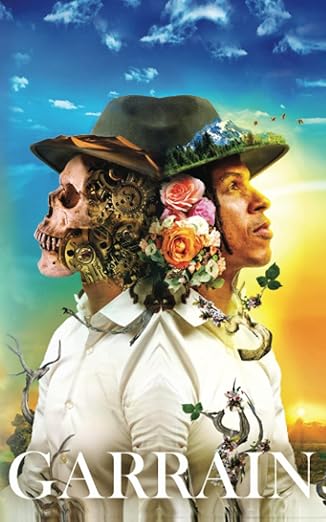
That moment was pivotal in Garrain’s life because that rocked his world. He did change his mindset because of that. He actually ended up writing a book called Change Your Mindset, Change Your Life. Eventually, he became a multimillionaire, but it all turned around for him when that phrase really sunk in.
Another example is on my other podcast, Marketing Speak. I recently interviewed Anik Singal, and the FTC sued him. It almost destroyed him and his business, but it cost him tens of millions of dollars and didn’t quite bankrupt him. But very close. There was this one moment when he was at the FTC headquarters presenting his case and trying to make friends with the FTC.
He was there clearing through security and all the scanners and everything. One of the security guards says, “Anik Singal, is that you?” And Anik’s like, “Do I know you?” He’s like, “No, but I know you. You are amazing. I’ve been following you for years. You’ve changed my life. I’ve been listening to all your programs. All the free stuff. I’ve never bought any of your stuff. I’ve been consuming your free content for years and years, and it’s really, really helped me, and I’m pleased to meet you. What are you doing here?”
And it points to the sign above them that shows it’s FTC. And he’s like, “No way. Oh, that sucks. I can’t believe that. Oh, that’s awful.” What popped into my mind in both circumstances when we were having this conversation about these two individuals just showing up randomly in their lives were angels. Based on that kind of context, I’m curious if somebody pops into your mind, whether it’s a prisoner in the judicial system or someone like a business person, somebody you happened to meet but was part of the positive conspiracy. Does anyone pop into your mind?
There’s a couple. And again, it was an amazing journey through those six months. And you’ve read the book. The book was the 11 letters I actually wrote from prison to my senior coaching students, giving them all of the inside information on how to use the mental tips, techniques, and processes to deal with something like that so they could use it in their own lives.
If you remember, in chapter six, I talk about Joseph Samuel, who’s a prisoner that I’d met who had been trapped inside prison due to the insane previous government’s sentencing laws called IPP, which means Imprisonment for Public Protection. This means you have a guideline. I think he has five-year guidelines. But then you have to continually go and prove yourself. No parole officer wants to take the responsibility of letting you go.
So, there’s always more hoops to jump through. He had a five-year sentence. He’d already been for 12 years. He was the most qualified prisoner in the British system. He’d done every course there was. He’d like, “You know, learning a foreign language and getting degrees and couldn’t get out and imagine going in knowing you don’t have an end date.” He inspired me. I worked with Joseph, and we did some stuff together.
But he really showed me the reason I was there. The first night I got there, you go into the induction wing and get in with somebody else who came in that day. It was a Bangladeshi guy named Ali, and he was rock bottom. He’d gone into court that day to get a court date hearing for a few weeks down the line for some misdemeanor that happened in a bar. The judge puts him on remand. He’d parked in a one-hour zone outside the court to get his date.
Adversity is not the enemy; it's often the greatest teacher. It's the crucible in which our strongest traits are forged. Share on XThe judge keeps him there. Now it was on a Friday, it wouldn’t be that bad, but it’s still bad. But his entire family had come over from Bangladesh because he was getting married the next day, and his world had fallen apart. I spent the first weekend in a wing with him locked in the cell. We weren’t allowed out for the 48 hours out of the cell. At the end of those two days, he says, “Wow, I came into prison on Friday knowing that my world and my life had fallen apart.
I now know I came to prison just to meet you.” That was a positive confirmation at the beginning of the journey: “Yeah, I’m here to help, serve, and try to make a difference.” It really helped me understand why I was there.
You were his angel.
But it’s all reflective. Einstein said something very profound. He said the most powerful question you could ask or answer in your lifetime is, “You live in a friendly or a hostile universe.” If you believe you live in a hostile universe, you’re going to look at everything through a fear-based mentality or a fear-based lens. That compresses you into being 100% physical, meaning the outer world is primary. You’re constantly looking for threats.
Your amygdala is overdeveloped as part of the brain that searches for danger or fear. You’re trained to think negatively before positive. A cascading level of effect translates inversely into satisfaction and joy, which you don’t get—living in a hostile universe. If you think that you live in a friendly universe, that is inverse paranoid. If you’re a positive conspiracy guy, everyone’s out there to serve and support you.

You’re going to look at things as exciting bends in the river, knowing that it’s going to take you somewhere great. You’re going to look at things like, “Wow, how is this serving me?” You can ask better questions now. The reality is you don’t actually live in a friendly universe, and you don’t live in a hostile universe. What Einstein was alluding to was the genius of it: you live in a self-reflective universe.
When you realize that everything acts as a mirror to validate your perception of reality, you start to appreciate that I’m in charge of the mirror. If I’m being led by the reflection, if I’m standing in front of a mirror and I’m angry because the reflection isn’t smiling, we see that as delusional. But that’s the reality that most people live in. They stand in front of the reflection. The outer world follows the inner world.
Change your mindset, change your life. There it is. If you stand in front of the outer world and you’re upset because it doesn’t fit your pictures, all you’re putting into the system is more instructions for it to frown back. Now, there is a delay, subject to what I call the quantum to the Newtonian transition point, which means that everything we know now patterns down from nonphysical into physical. Nonphysical is the superset. Physical is the subset. Einstein knew that.
We know that in quantum physics, the wave gives birth to the particle. The particle doesn’t give birth to the wave. So, the outer world follows the inner world. What are you putting in? If you have an unlimited wardrobe, Stephan, and you’re standing in front of the mirror of your life, why would you go to the wardrobe with the victim’s clothes on? Put it on, stand in front and bitch about what you see in the mirror. When you go to the superhero wardrobe, you can get a cape. You can stand there for a $10,000 custom-made suit. How you feel will reflect back based upon the mental wardrobe you choose to wear.
‘Choose’ being the operative word. Joseph Samuel, is he still in prison, or has he finally been released?
How you feel will reflect back based upon the mental wardrobe you choose to wear.
I don’t actually know. We’ve had several people try to find out—excuse the pun—but it’s hard to break into the prison system. A lot of people just don’t want to be held accountable. I hope so because this happened over five years ago now. But I would pray that the guy’s out, but he would be moved every three months to a new prison, which means you can’t make friends. It’s like you have to learn the new ropes.
You learn the new system in whatever prison you’re in. It was heartbreaking. It’s also a very good contrast frame. It’s like, “Wow, how grateful am I that that didn’t happen to me.” Rather than, “Oh, my God, what a victim I am for being going to prison.” I got a lot of it, as you know by the book. I got a lot of the prisoners off drugs. I was stopping suicides. I redesigned the intake system while I was there to reduce violence between the wings.
That’s now being used in prisons all over the world. I won a national award for my work. I didn’t do it for any of that. I did it to make a difference. I did it to try to help. As a result, the 11 letters that I wrote to my students convinced me to publish. They said, “Look, we’ve learned more from these 11 letters you wrote than following you around the world for the last two years on stage. You have to publish these.”
I’m like, “These are private letters. You guys paid me a fair bit to learn some of the stuff before that.” It was like a real-life case study. You could follow me on to validate the stuff I’m teaching. They said, “But these letters will help a lot of people.” And just something went on like, that’s my hot pun. So, we published them—just the original unedited letters, which were all handwritten. There are no computers in there. And we call it The Inside Track. That’s kind of a play on words.
Obviously, it’s the inside track with it on the inside, but the inside track is also your mental track. The outer world follows the inner world. It went Amazon number one in four hours. Bestseller outsold three suppliers on the first day to 40 countries. I’m very privileged to say it’s changed the lives of pretty much everybody who’s read the book. I detailed a lot of stuff there, and it was very specific in terms of how I was stopping suicide.
How do you stop somebody committing suicide who’s committed to doing it in less than five minutes and make it permanent? Not just change at the moment. You can change anybody’s mind in the moment. But when they go back to the cell and think the same thoughts, how do you close the loop on that wiring so that it’s not an option anymore, and it’s their choice for it not to be an option? How do you do that? You need training for that.
Choosing love over fear is essential for personal and collective transformation. It's a choice we must make daily, even in the face of uncertainty. Share on XAs you alluded to at the beginning, I spent 15 years working alongside Tony Robbins on psychotherapeutic intervention. Why would I not share that with people? If their daughter’s depressed because of some stuff going on at school, you can use similar techniques. I break it down. How can I stop the violence erupting between the religious conversation on the wing one day, which would have brought in all of the usual riot police and dogs and all the other stuff that kept going on while I was there multiple times?
How do you get invited into a conversation brewing for violence, innocently maintain the illusion of significance for the people in charge, break the pattern, align and redirect and have them all become friends within five minutes? That’s a skill set that can be taught. I had an obligation to be able to capture these interventions that I was doing, document them, and then share them with my students and now the world so that I could learn techniques that would take people years or never have the opportunity to be able to do that.
How was I dealing with it myself, having lost everything? What about the times that I doubted myself, cried or felt that the world was against me? How do I pull myself up out of that? Well, what are the tools that I use? Because it’s got to be real. It wasn’t six months of a happy journey. Where do you live? Where do you visit?
I’m really proud that the book was never meant to be a book. It was just a series of letters. But it’s gone on to change lives globally. I know that you’re helping me work on a deal right now to get it to tens of, if not hundreds of thousands of prisoners in the US which would be amazing as well.
Yeah, I’m committed to making that happen. There are over 600,000 tablets in various prisons across the US, and it will be over a million tablets within the next several years. And one of the former guests on this podcast, Andre Norman, is on the board of that organization that makes those tablets secure us. I’ve sent your manuscript over to Andre, and he’s working on getting it on the tablet. So I’m committed to making that happen because this is just too powerful and life-changing not to make sure it gets on those tablets.
I just did a big event here in Tenerife in the Canary Islands, where I live—300 people in the room, two thousand on livestream. One of the people who came in the room, a student at my work, was on D Wing in Pentonville and picked up my book from the library. I sent a load of copies there. He was in the same cell I was in while writing the letters. His name was Jas Singh. It was early in his sentence.
Through that, he completely transformed his prison experience and went on to help many prisoners. He was released. The day before the event, he got permission from his parole officer. He stood on stage and told me his story, how that book had changed not only him but also the people he was able to help in prison and the ripples of contribution just from his story.
There wasn’t a dry eye in the house, myself included, listening to him in terms of how those letters had transformed everything. If we can get that into the hands of a million people in the US, that will create a movement that is just beyond.
Wow. Our listener may be wondering, “Well, how can I help you?” My friend who’s listening, please pray for the most benevolent outcome in this scenario. Your prayers are heard. Every prayer is heard. So I’m curious if you get the sense that you agreed to this crazy turn of events that happened to you and for you in the form of some sort of soul contract before you incarnated, of course.
I call reality Earth school life—a growth-centric experience. So we’re in Earth school now. Is the purpose of school to be happy if we take the fractal expression on Earth? The normal school system. Is the purpose of school to be happy? No. Does it mean you can’t be happy in school? Of course not. But it’s not its purpose. The purpose of school is to create an environment that allows you to make better choices that would lead to an education.
Nature operates on two laws: growth and contribution.
It’s set up to help you win, if that is your intention, to align with that outcome. You have free will. You can choose to goof off and not attend class. You can choose to study hard and revise and dedicate yourself to the classes. Those two choices are going to lead to two different outcomes. Nature operates on two laws: growth and contribution. If you really want to look at my take on why we are here and why this is created, go to 400 million years of fossils. Let’s just call it that without getting into philosophical debates.
But just work with me on the thread here. The clues, the obvious statement that evolution is able to tell us, is that life evolves into ever more levels as time progresses. You start with a bacteria into a single-cell amoeba. If you take a human body of 50 trillion cells, you take 50 trillion amoebas and introduce one food source, what have you got? I’ll tell you. War, right? You take 50 trillion human cells and introduce one food source into the body.
You don’t have war. You don’t have the liver and the spleen ganging up against the lungs and the kidneys to see who gets the most hemoglobin out of the blood. That’s not going on. This means that for higher levels of complexity, that is the direction of travel of evolution. As far as we can tell from the fossil records staring us in the face, it requires one thing to function—cooperation, not competition. If you take cooperation, that word, and extrapolate that to its logical conclusion, you hit one other word, love.
Why are we here? Why are we in Earth school? What is the purpose? The purpose is to learn how to love. That’s not woo-woo, hippie; let’s all hold hands and sing songs. That’s evolution. That’s the algorithm driving evolution right now that’s been put in place by whatever almighty creator is responsible for putting that together. But it’s telling us very, very easy. And look at the masculine and feminine, split in terms of biology.
Animals are slightly different. They have what we call instincts and are primarily driven by sort of hormones and pre-programmed on what to do. But human beings, at the level of evolution we are right now, in order for the human race to survive, we have to learn how to get along. Anything outside of that context, you go to jail for.
But in order to procreate, we have to learn how to cooperate, not compete. We learn how to love, to have a level of connection and bonding that transcends lust and short-term hormonal, animal-based instincts. As humanity evolves, this essentially underpins the reason we’re here: to become a love machine waiting to happen.
That’s beautiful. When you asked what the word was, I didn’t think of cooperation. I thought it was divine orchestration.
That’s definitely the mandate.
Yeah. There are two different ways of looking at the same thing.
If you built a wall around the world, around the circumference, you split it in two. On one side of that wall, you ran an experiment for 20 years on each side of the wall, and on one side, you had a mentality of competition, and you ran that simulation, shall we call it? You would pretty much see what we have now. You would have people who would invent something and want to keep it for themselves. You would have power centers that we call countries or governments starting to emerge. You’d have the weaker people siding or being subverted by a more powerful side.
If there’s a limited scarcity around resources, you see people trying to pool resources or accumulate or hoard resources at the expense of other people having less. Welcome to a lot of what we’ve kind of evolved into up to this point. You flip the other side of the wall from the cooperative side. It used to be like this: to be fair in high-conscious communities. If your barn burns down, everybody from the village helps you rebuild it.
If you discovered something that added value, you’d want to share it with the rest of the people so you could all benefit. Fast-forward 20 years, and you will have a very different society. I think that is the path we’re starting to take now as more and more people wake up to a higher level of emotional maturity. Cooperation versus competition is the path of love versus fear.
I think the ultimate reason we’re here at Earth School is the ultimate benchmark graduation. When we get to the end of class, we have to be accountable for the results of the test scores. It boils down to being able to choose love over fear in ever more challenging circumstances. That’s what I was attempting to do. Not always successful, but it’s what I was attempting to do with my graduation event in Pentonville.
Beautiful. Thank you for sharing with such candor and vulnerability and for being such a light in the world. I’m sure our listener is inspired by your story, actions, and the things you continue to do to improve the world. Thank you so much.
You’re very welcome all. My next adventure begins in a couple of weeks, where I’m actually going to be rowing across the Atlantic. That’s my next graduation event. Although, this time, it’s on my terms. The whole thing with that, Stephan, just to finish on, is that the tagline behind that this is the world’s toughest event. I’m in a 7-meter rowing boat with no engine, a couple of solar panels, one other guy, and somebody’s always rowing. So, I have two hours off, 24/7, and am unsupported from the Canary Islands to Antigua. Depending on the wind, you’re looking for two months.
That’s sleeping a maximum of 90 minutes at any time during those two months. There are a couple of reasons why we’re doing that. The first one is that I want to benchmark where I’m at in terms of self-mastery. I teach mental mastery. Am I still qualified to teach after a month in the middle of the Atlantic and the nearest person’s in the International Space Station? The nearest ground’s five miles underneath me—we’re in a raging sea with five plus meter waves. I’m seasick. I’ve not eaten for 12 hours. I’ve got blisters on my hands and my ass and I’ve got to go out and row backwards in the dark for two hours.
My mind’s going to give me every excuse. Where am I when it comes? When it’s real, let’s make it real. Let’s see where I’m at. Am I still qualified to teach? That’s one reason. But the other, more important one is our hashtag. What’s your role? You just want to make it about me and my friend doing crazy stuff like that. Everybody has their own Atlantic row. For some people, it’s a traumatic divorce, a stage 4 diagnosis, a business failure, or the loss of a loved one.
Using the same techniques, I’m going to be trying to keep myself sane across that endurance event. I’m going to be sharing each day on social. Don’t make it about me running the Atlantic. What’s your role? What can you do right now using some of the things I’m hopefully going to try to share and validate that’s going to help you be a better person, be a better parent, be a better partner, get through whatever your row is because it will end at some point.
And as Solomon said, “This too shall pass.” How do we help each other get through our own rows? If my little trip across the Atlantic can be symbolic enough to represent that, then I’m honored to jump in the boat.
Amazing.
Support us, teamcheerfulness.com. “Cheerfulness in the face of adversity” is the tagline.
How does somebody follow your work and learn from you? Where should we send them to get the book?
Yeah, on my website, petersage.com, you can get a lot of free resources. I’m obviously on social media, @therealpetersage, on YouTube, Instagram, Facebook, and other usual stuff. I try to put out as much free content as I can to help people. Obviously, if they want to step it up a level, we’ve got some award-winning, best-in-class programs that really help. I’m very humbled to say that we’re the highest-rated company of our kind on Trustpilot. We’ve got 4,000 reviews, and our average is 4.9, which is great for the industry because traditionally, people have been undersold, missold, disappointed, or unmet expectations. We try to live the mission that we’re on as a business, as a brand, as a company, which is to help raise global consciousness, especially at a time in history right now, which is pivotal, I believe, where the world needs it.
Awesome. All right, well, thank you again, Peter. Thank you, listener. Make it a great week. Get out there and reveal some light in the world, and we’ll catch you in the next episode. I’m your host, Stephan Spencer, signing off.

